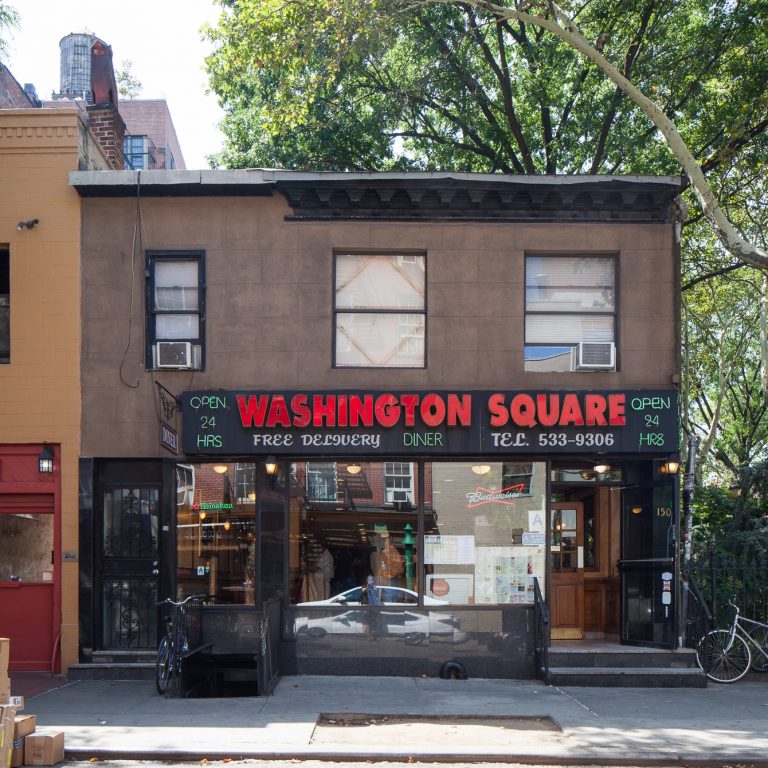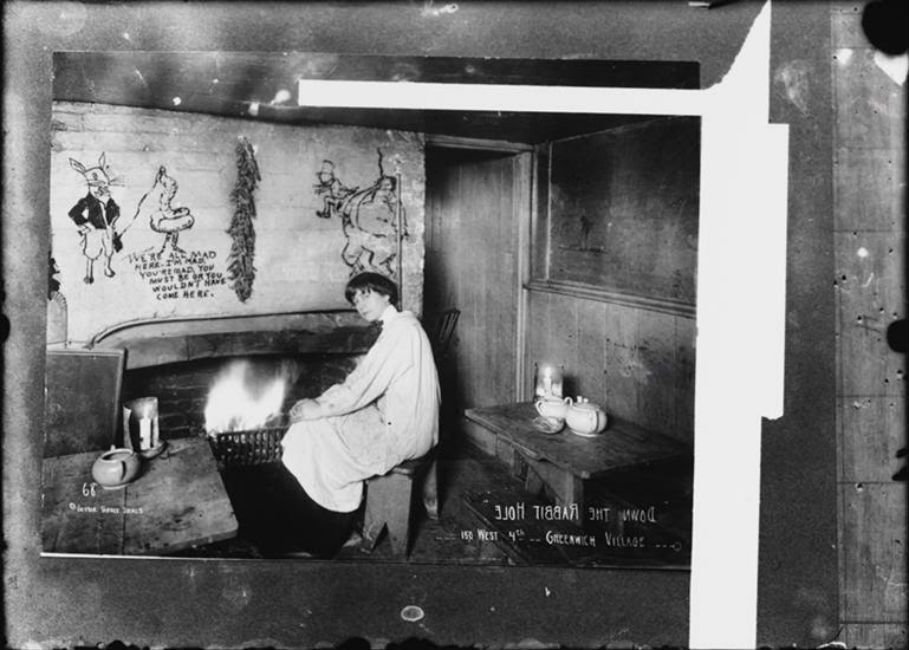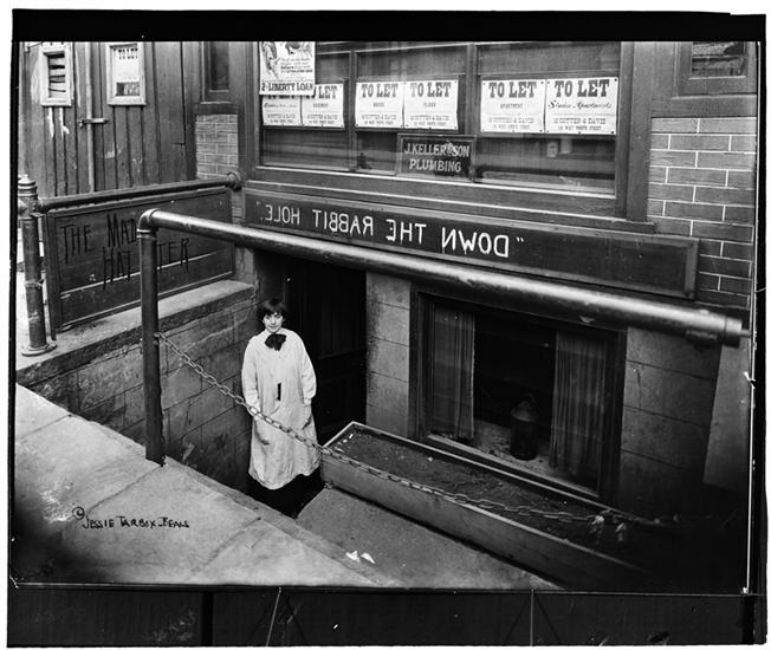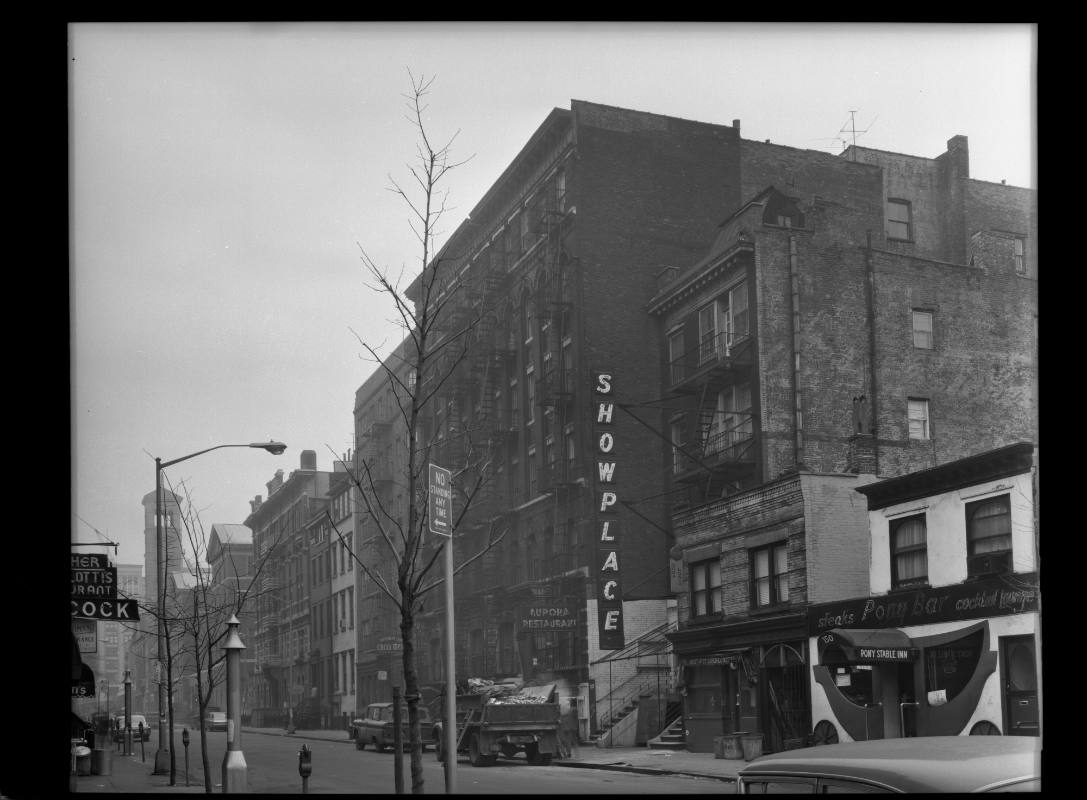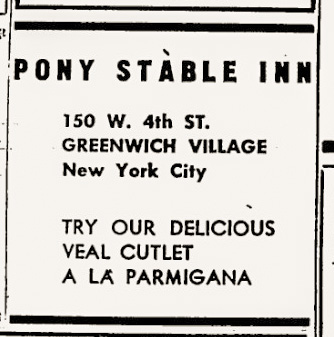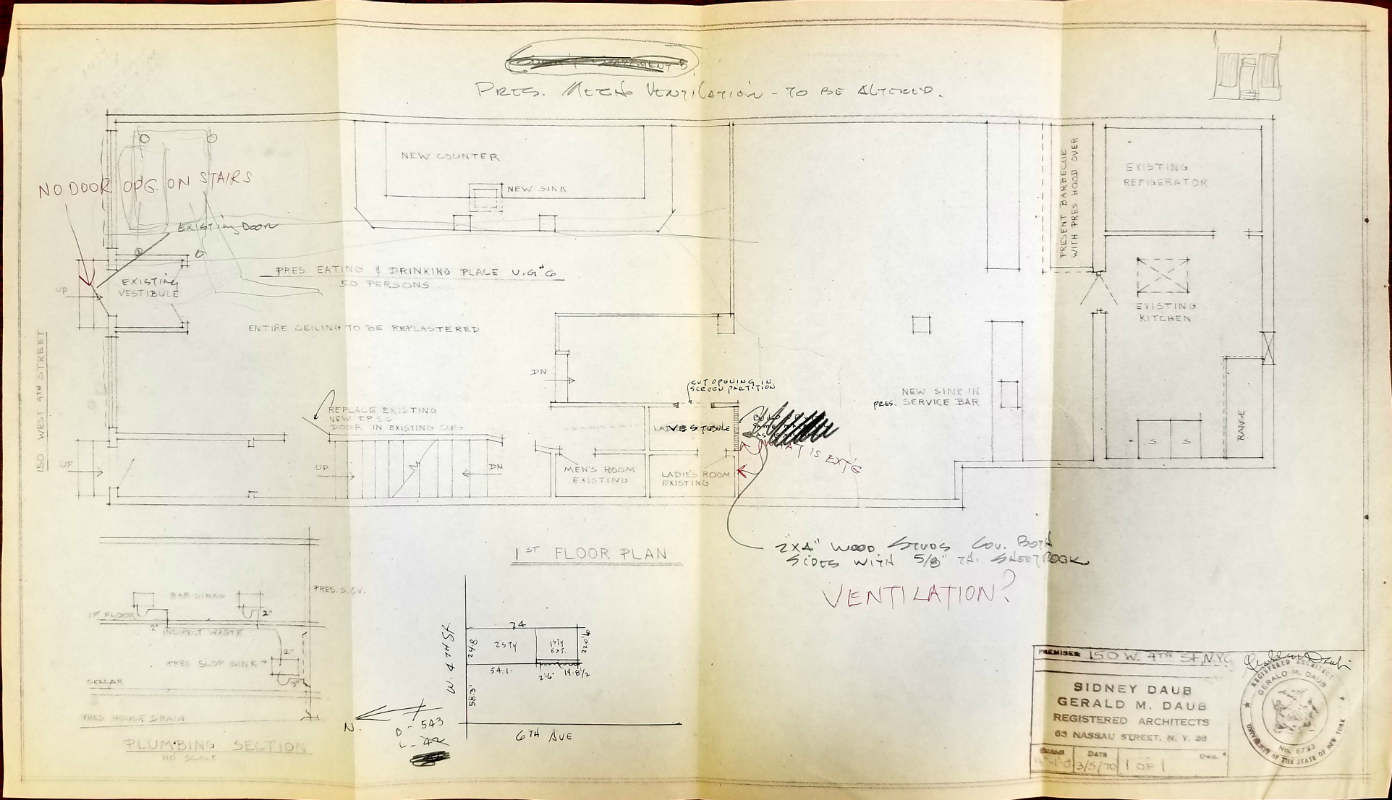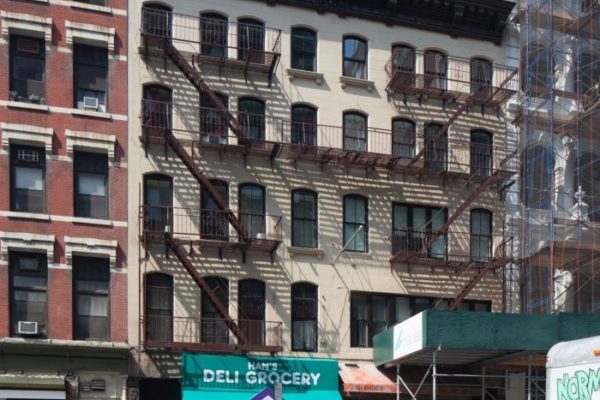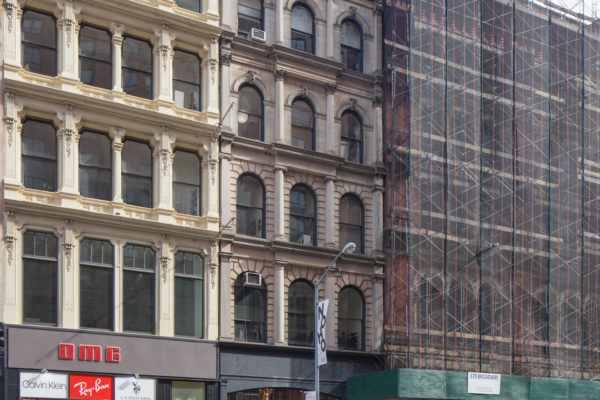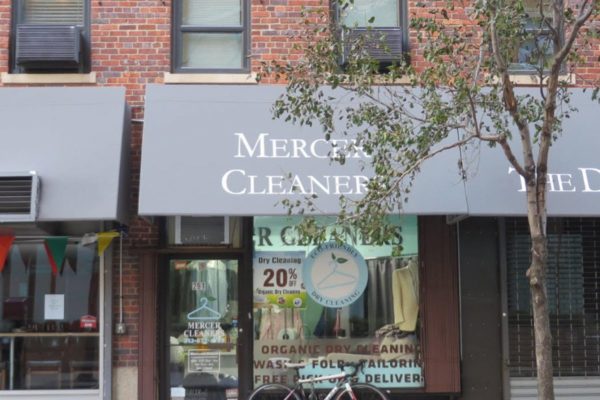overview
From 1916 to c. 1930, the basement of this building was the location of the Mad Hatter, Greenwich Village’s first bohemian tearoom that, for a number of years, was owned by Eliza “Jimmie” Criswell and her partner Mathilda Spence.
The ground floor space was the location of the Pony Stable Inn, a lesbian bar, from 1945 through January 1970, and was popular among a butch/femme, mostly white, working-class crowd.
On the Map
VIEW The Full MapHistory
The building at 150 West 4th Street has early LGBT history in its incarnation as the Mad Hatter, which was located in the basement from 1916 to c. 1930. The first tearoom in the Village, the Mad Hatter attracted a bohemian crowd (and a number of upper class “slummers” who came to watch them). Eliza Helen Criswell – who went by “Jimmie,” had short hair, and wore sandals, artsy smocks, and tailored suits and ties for formal events – owned the establishment with her partner Mathilda Spence for a number of years.
Beginning in 1945, the ground floor space was the location of the Pony Stable Inn, a lesbian bar. Like other Greenwich Village lesbian bars of the 1940s-1960s, such as the Sea Colony and the Bagatelle, the Pony Stable Inn attracted mostly working-class white women who adhered to strict butch/femme gender roles [for an explanation on butch/femme, see the entry on the Sea Colony]. Almost all gay bars of the time in New York City were run by the Mafia and frequently raided by the police. A McCarthy-era tactic of infiltrating gay spaces with informants was also common, making women reluctant to talk to those they did not know for fear of police entrapment. Acclaimed Black lesbian feminist, writer, and activist Audre Lorde wrote of the reluctance to speak with anyone at a lesbian bar at the time for fear of coming across a plainclothes policewoman: “There were always rumors of plainclothes women circulating among us, looking for gay girls with fewer than three pieces of female attire. That was enough to get you arrested for transvestism, which was illegal.” Women also did not speak to strangers because, in the words of Lee Zevy (who would later co-found Identity House NYC), “Nobody talked to anybody because everybody was deeply, deeply in the closet, even at the bar.”
Despite the community-imposed and legally-imposed rules about how to dress and conduct oneself, lesbian bars were some of the very few places where lesbians could meet each other at that time, and for that reason they were very meaningful to those who frequented them. Zevy describes the elation she felt setting foot in the Pony Stable Inn, her first-ever experience in a lesbian bar:
We walk into this bar and twenty women turn around and start staring, and I was like, ‘Oh my God, I think I just went to heaven!’ Best feeling, and terrifying.
Lorde also describes the importance of lesbian bars to her and fellow lesbians in mid-20th-century America:
What we both needed was the atmosphere of other lesbians, and in 1954, gay bars were the only meeting places we knew.
The Pony Stable Inn closed in January 1970, several months after the Stonewall uprising.
Entry by Gwendolyn Stegall, project consultant (July 2018).
NOTE: Names above in bold indicate LGBT people.
Building Information
- Architect or Builder: Unknown
- Year Built: pre-1845
Sources
Audre Lorde, Zami: A New Spelling of My Name (New York: Crossing Press, 1982). [source of Audre Lorde pull quote]
Christopher D. Brazee et al., South Village Historic District Designation Report (New York: Landmarks Preservation Commission, 2013).
Gwen Shockey, Making Space: Lesbian Community, Nightlife and Activism in New York City (forthcoming). [source of Lee Zevy pull quote]
New York City Department of Buildings, alteration permit no. 1097-70, 1970.
New York City Directories (1945-1970).
Tom Miller, “The Mad Hatter Tearoom – No. 150 West 4th Street,” Daytonian in Manhattan, November 14, 2013, https://bit.ly/2mn0mCp. READ MORE
Do you have more information about this site?
This project is enriched by your participation! Do you have your own images of this site? Or a story to share? Would you like to suggest a different historic site?
